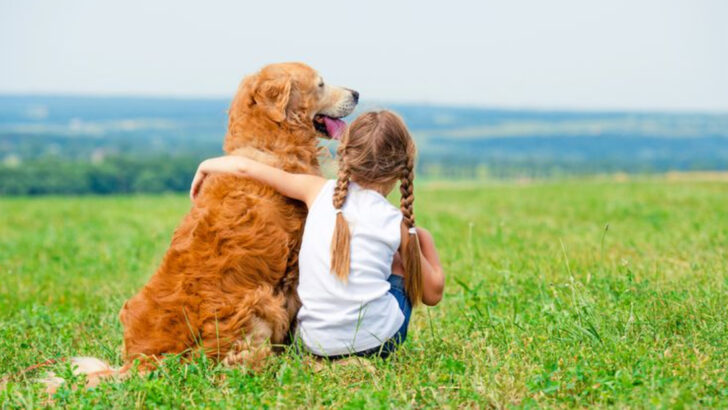Every kid deserves a dog. Period.
Not a goldfish. Not a hamster. A dog—with muddy paws, slobbery kisses, and a tail that never stops wagging.
Because no toy, no screen, no perfectly planned playdate can compete with the wild, loyal, chaotic love of a dog.
Dogs don’t just keep kids company. They teach them how to live. How to show up for someone. How to clean up a mess they didn’t mean to make. How to laugh until their belly hurts over a game of fetch that lasted way too long.
And yeah, dogs make mistakes—chewed-up shoes, stolen sandwiches, the occasional backyard excavation. But so do kids.
That’s what makes them perfect for each other.
Unconditional Love
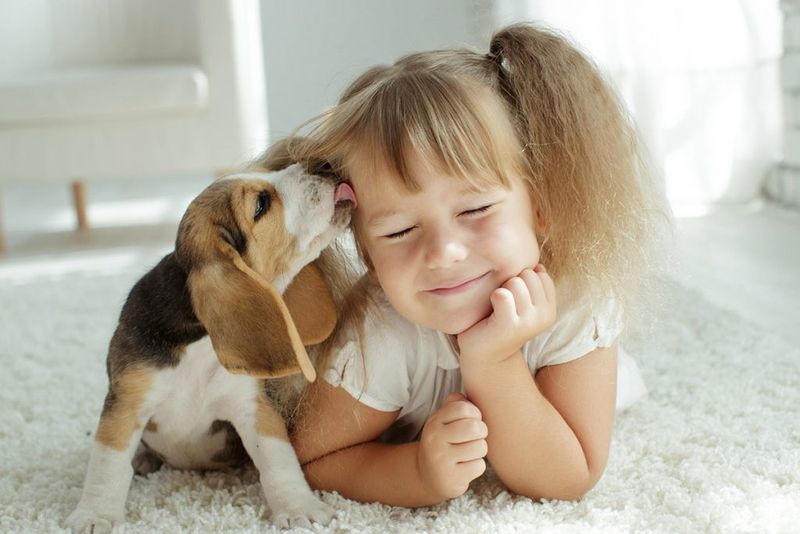
Dogs offer a unique kind of love that is pure and unconditional. Their ability to read emotions and respond with warmth makes them exceptional companions for children.
The bond they form is unbreakable, providing comfort during tough times and enhancing joyful moments. Their wagging tails and cheerful demeanor brighten any day.
This emotional support extends beyond typical friendship, making them indispensable in a child’s life. The love they offer is a lesson in compassion and understanding, teaching children to reciprocate with kindness and care.
Life Lessons in Responsibility
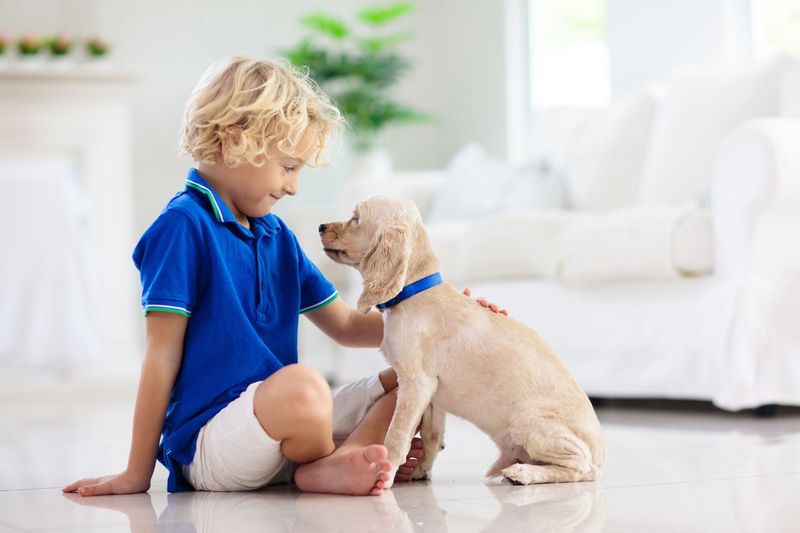
Owning a dog comes with responsibilities that teach children essential life skills. From feeding schedules to grooming, children learn the importance of routine and commitment.
These tasks instill a sense of duty and accountability that extends into other areas of life. This responsibility fosters maturity and independence, encouraging children to take initiative.
As they care for their furry friend, they also learn about empathy and the importance of meeting the needs of others, skills that are valuable throughout life.
Encourages Physical Activity
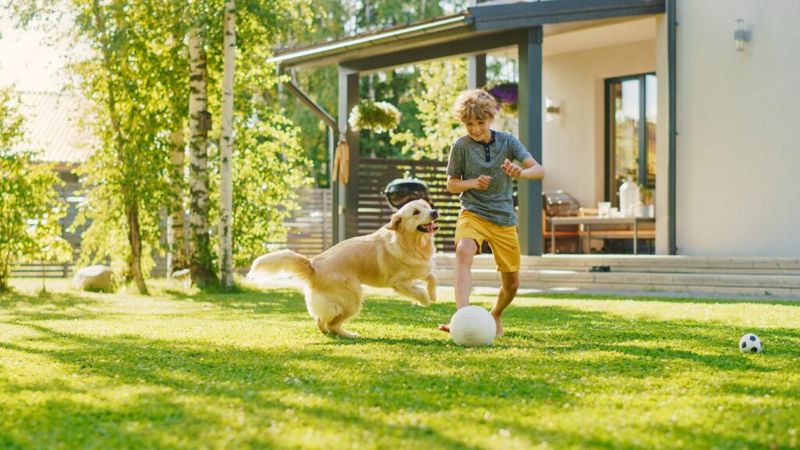
Dogs are natural motivators for physical activity, inspiring children to get off the couch and into the outdoors. Whether it’s a game of fetch or a walk in the park, dogs encourage active play.
This active lifestyle promotes physical health and well-being in children. Engaging in regular exercise with their canine companion helps kids develop a love for fitness.
The energy and enthusiasm of a playful dog make exercise feel like fun rather than a chore, setting healthy habits for life.
Boosts Emotional Development
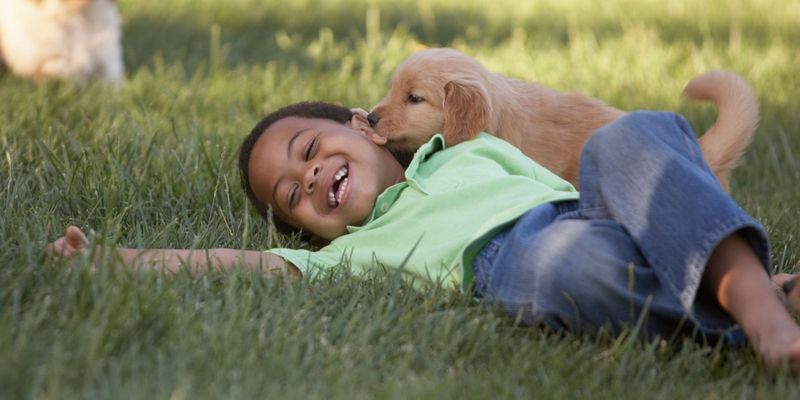
Interacting with dogs helps children understand and express their emotions better. The silent yet profound communication between a child and their dog nurtures emotional intelligence.
It teaches children to identify and manage their feelings, enhancing their emotional maturity. Dogs provide a non-judgmental presence, allowing children to express themselves freely.
This environment fosters self-confidence and emotional growth, helping children navigate complex emotions with ease.
Strengthens Family Bonds
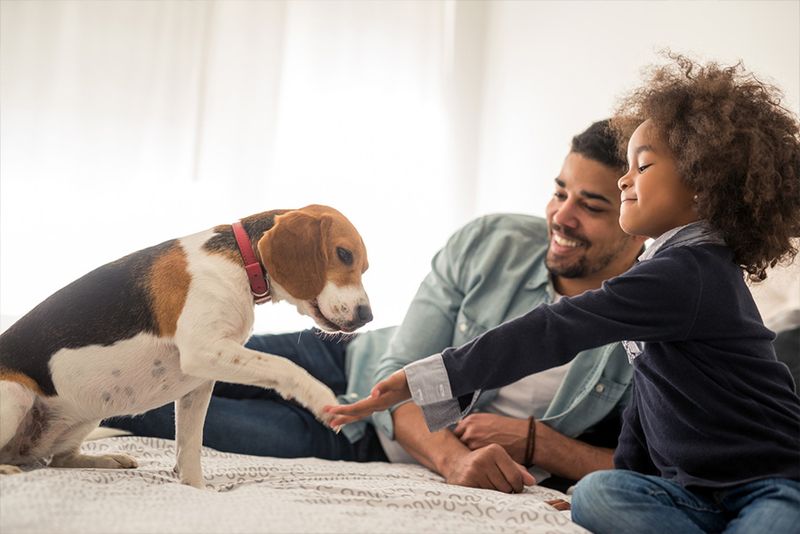
Dogs can strengthen family ties by bringing everyone together. The shared responsibility of caring for a pet fosters teamwork and cooperation among family members.
Activities like walks and playtime become opportunities for family bonding. These moments spent together create lasting memories and traditions centered around their furry friend.
Through shared experiences and care, dogs become an integral part of family life, weaving love and laughter into everyday moments.
Enhanced Social Skills
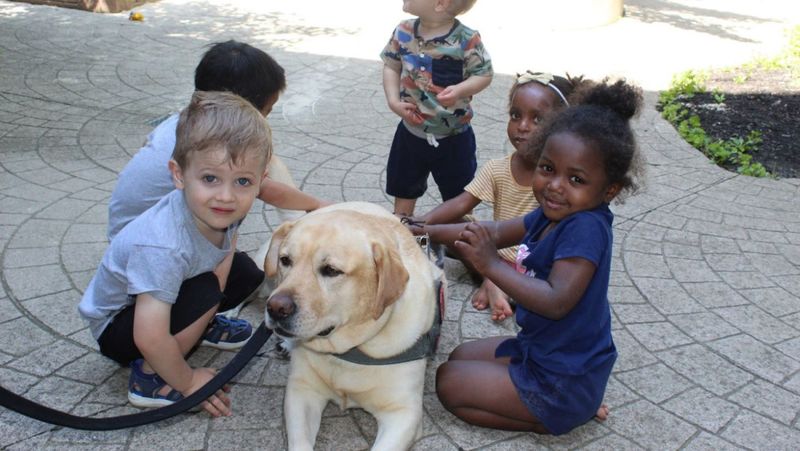
Dogs act as social bridges for children, facilitating interactions with peers and adults alike. Taking a dog for a walk often leads to conversations and new friendships, improving social skills and confidence in interacting with others.
This social engagement nurtures communication skills and helps children learn the nuances of social interactions.
With a dog by their side, children feel more secure and open, paving the way for strong, lasting friendships.
Teaches Compassion

Caring for a dog teaches children compassion and empathy. Observing their pet’s needs and responding with kindness nurtures a caring attitude.
Children learn to read subtle cues and understand non-verbal communication, deepening their emotional awareness. This compassion extends to other areas of life, fostering a kinder, more empathetic approach to interacting with others.
The lessons learned through caring for a dog help shape considerate and understanding individuals.
Promotes Patience
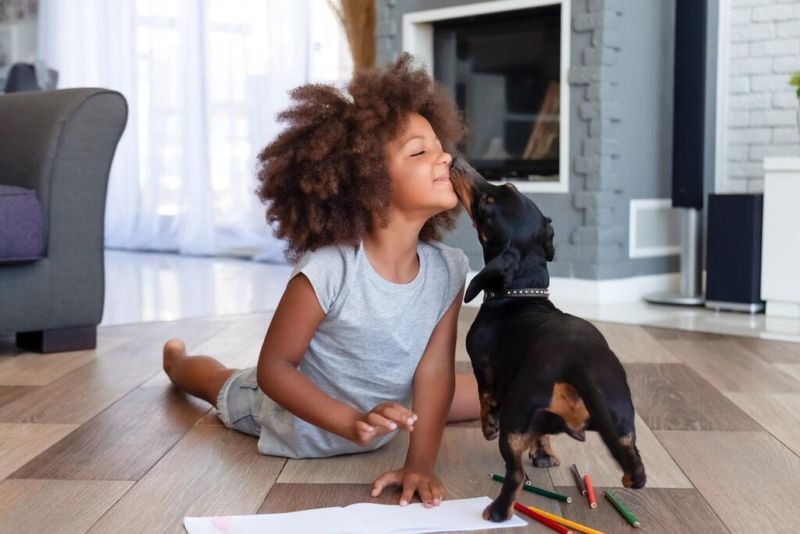
Training a dog is an exercise in patience. Children learn that good behavior takes time and effort to instill. This patience is a valuable skill that extends to various aspects of life, from academics to personal relationships.
The process of training their furry friend teaches perseverance and determination.
As they see the results of their efforts, children gain a sense of achievement and satisfaction, reinforcing the value of patience and hard work.
Provides Security and Comfort

Dogs offer a sense of security and comfort to children. The presence of a loyal dog can ease fears and anxieties, creating a safe and reassuring environment.
Their protective nature ensures children feel secure both at home and when out and about. This sense of safety fosters self-esteem and courage, allowing children to explore the world with confidence.
The comfort of a dog’s companionship eases loneliness and provides a steady source of love and support.
Encourages Outdoor Exploration
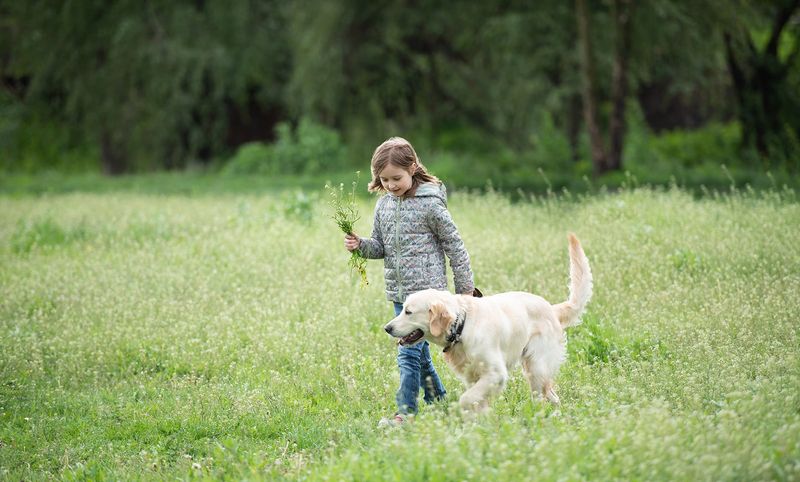
With a dog in tow, children are encouraged to explore the great outdoors more often. Whether it’s a hike through the woods or a romp in the park, dogs spark curiosity and a sense of adventure.
These outdoor adventures foster a love for nature and discovery. Children learn about the world around them, developing an appreciation for wildlife and the environment.
The companionship of a dog makes every exploration more exciting and enjoyable.
Fosters Creativity and Imagination

Dogs inspire creativity and imagination in children. Their playful antics and joyful energy can transport kids into realms of make-believe and fantasy.
Whether it’s inventing games or storytelling, dogs are the perfect partners in imaginative play. This creative play enhances problem-solving skills and cognitive development. Children learn to think outside the box and express themselves freely.
The presence of a dog brings stories and adventures to life, making playtime magical.
Builds Confidence

Owning a dog builds confidence in children. Successfully teaching their pet a new trick or caring for their needs instills a sense of pride and accomplishment.
These small victories boost self-esteem and encourage a positive self-image. The unconditional loyalty and love of a dog reinforce this confidence, providing a supportive backdrop for personal growth.
As children navigate challenges with their canine companion, they develop resilience and assurance in their abilities.
Facilitates Learning about Nature
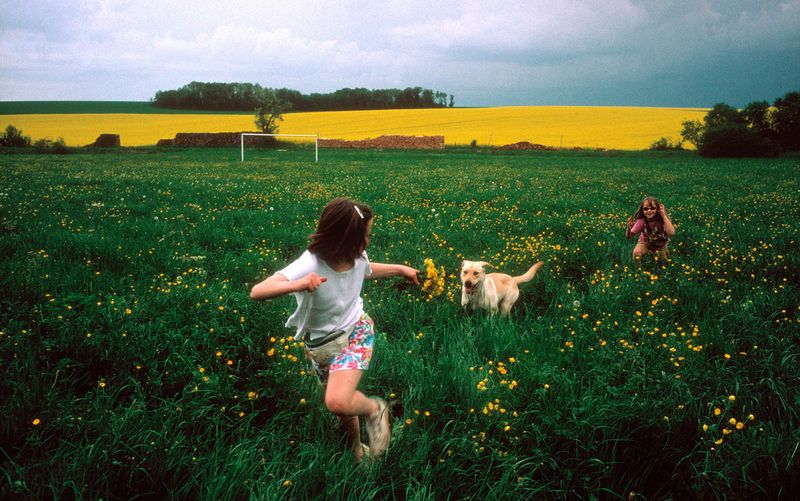
Dogs open up opportunities for learning about nature. Their curious nature leads children to explore their surroundings and discover new things about plants, animals, and insects.
This exposure to the natural world enhances environmental awareness. Children learn to appreciate the beauty and intricacies of nature, fostering a lifelong love for the environment.
Dogs make these learning experiences engaging and memorable, turning each walk or playtime into a lesson in biology and ecology.
Promotes Mindfulness and Relaxation
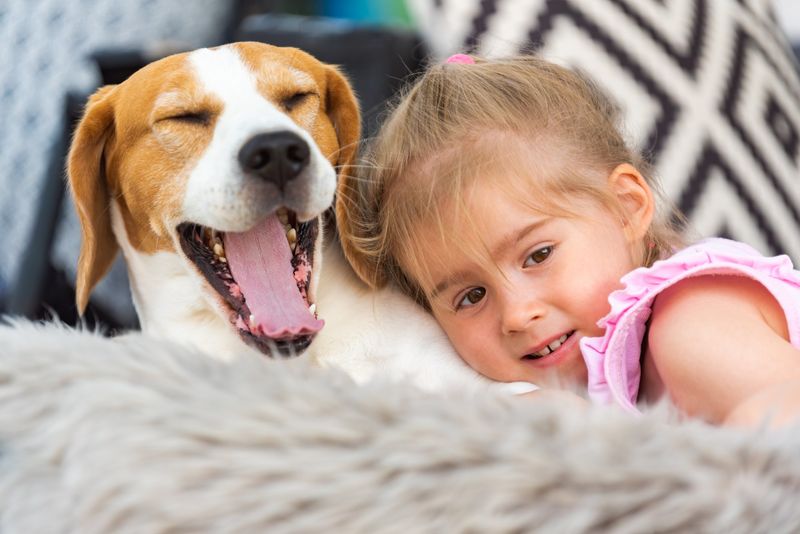
The calm presence of a dog promotes relaxation and mindfulness in children. Spending time with a dog encourages kids to slow down and enjoy the moment, fostering a sense of peace and tranquility.
This mindfulness practice helps children manage stress and anxiety, improving their overall mental health. The soothing presence of a dog provides comfort and a safe space for children to unwind and recharge.
Instills a Sense of Loyalty
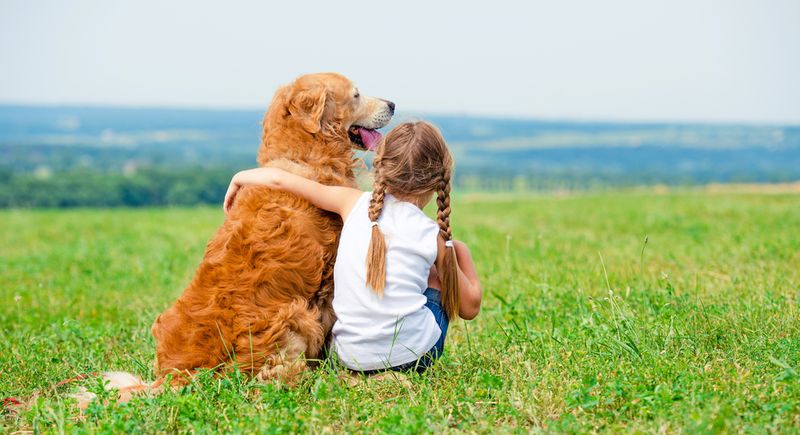
The loyalty of a dog teaches children about the importance of dedication and trust. Dogs demonstrate unwavering loyalty, providing a model for children to emulate in their relationships with others.
This bond deepens a child’s understanding of commitment and fidelity, fostering strong and trustworthy relationships.
The companionship of a loyal dog offers lessons in friendship and loyalty that last a lifetime.
Encourages Empathy and Sympathy
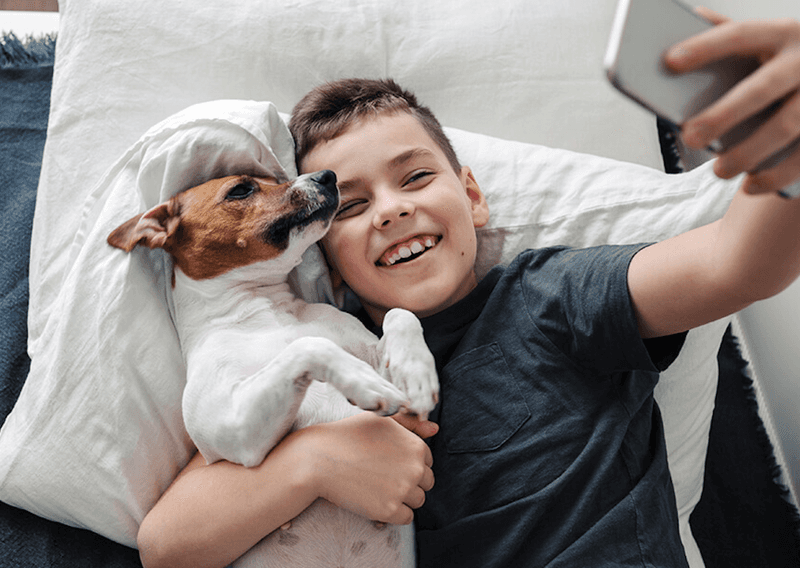
Dogs are sensitive to human emotions, teaching children empathy and sympathy. Observing their dog’s reactions to different situations helps children understand and share the feelings of others.
This emotional connection encourages children to be more caring and considerate, building a foundation for compassionate relationships.
As children comfort and support their canine companions, they learn valuable lessons in empathy and emotional intelligence.

